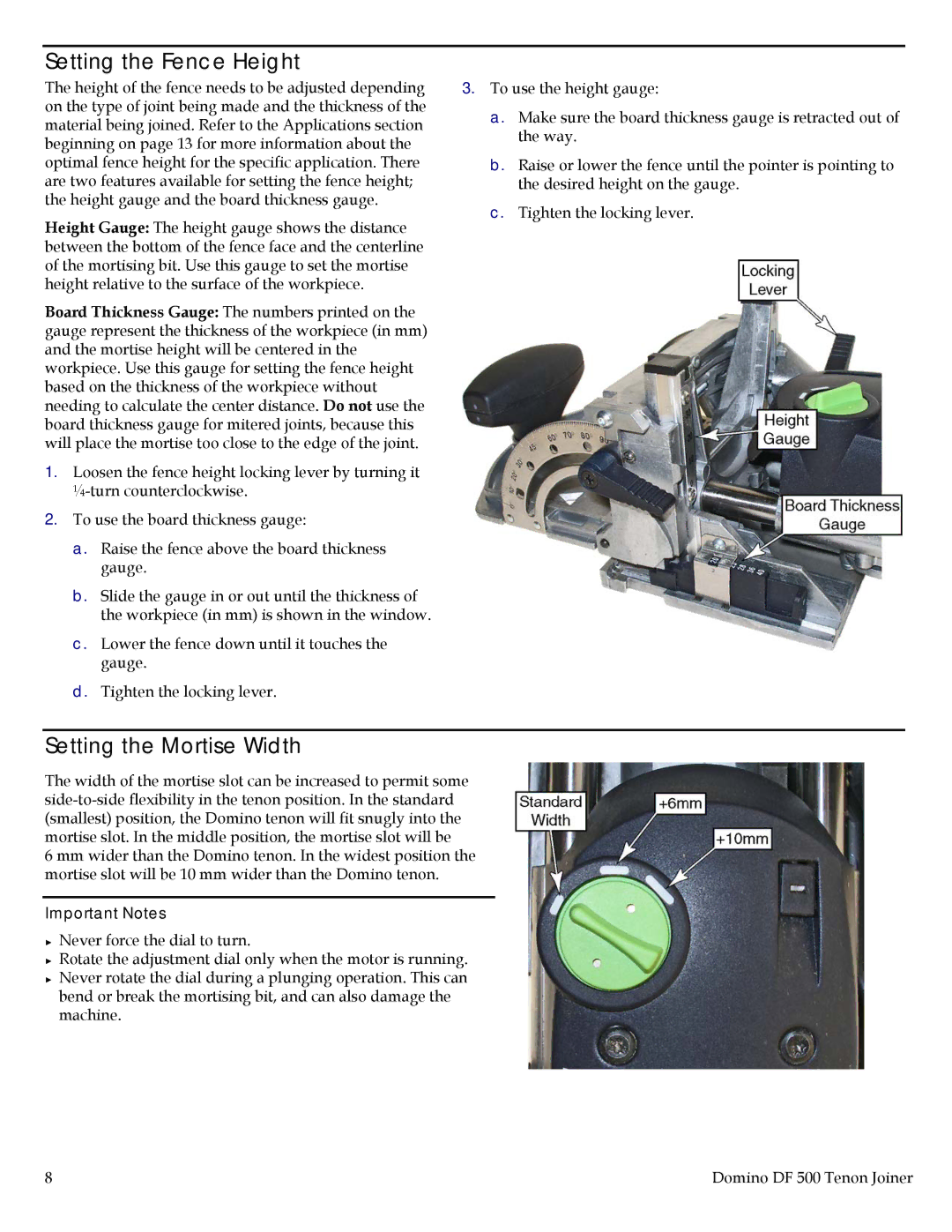
Setting the Fence Height
The height of the fence needs to be adjusted depending | 3. To use the height gauge: | |
on the type of joint being made and the thickness of the | a. Make sure the board thickness gauge is retracted out of | |
material being joined. Refer to the Applications section | ||
the way. | ||
beginning on page 13 for more information about the | ||
| ||
optimal fence height for the specific application. There | b. Raise or lower the fence until the pointer is pointing to | |
are two features available for setting the fence height; | the desired height on the gauge. | |
the height gauge and the board thickness gauge. | c. Tighten the locking lever. | |
Height Gauge: The height gauge shows the distance | ||
| ||
between the bottom of the fence face and the centerline |
| |
of the mortising bit. Use this gauge to set the mortise |
| |
height relative to the surface of the workpiece. |
| |
Board Thickness Gauge: The numbers printed on the |
| |
gauge represent the thickness of the workpiece (in mm) |
| |
and the mortise height will be centered in the |
| |
workpiece. Use this gauge for setting the fence height |
| |
based on the thickness of the workpiece without |
| |
needing to calculate the center distance. Do not use the |
| |
board thickness gauge for mitered joints, because this |
| |
will place the mortise too close to the edge of the joint. |
|
1.Loosen the fence height locking lever by turning it
2.To use the board thickness gauge:
a.Raise the fence above the board thickness gauge.
b.Slide the gauge in or out until the thickness of the workpiece (in mm) is shown in the window.
c.Lower the fence down until it touches the gauge.
d.Tighten the locking lever.
Setting the Mortise Width
The width of the mortise slot can be increased to permit some
6 mm wider than the Domino tenon. In the widest position the mortise slot will be 10 mm wider than the Domino tenon.
Important Notes
►Never force the dial to turn.
►Rotate the adjustment dial only when the motor is running.
►Never rotate the dial during a plunging operation. This can bend or break the mortising bit, and can also damage the machine.
8 | Domino DF 500 Tenon Joiner |
